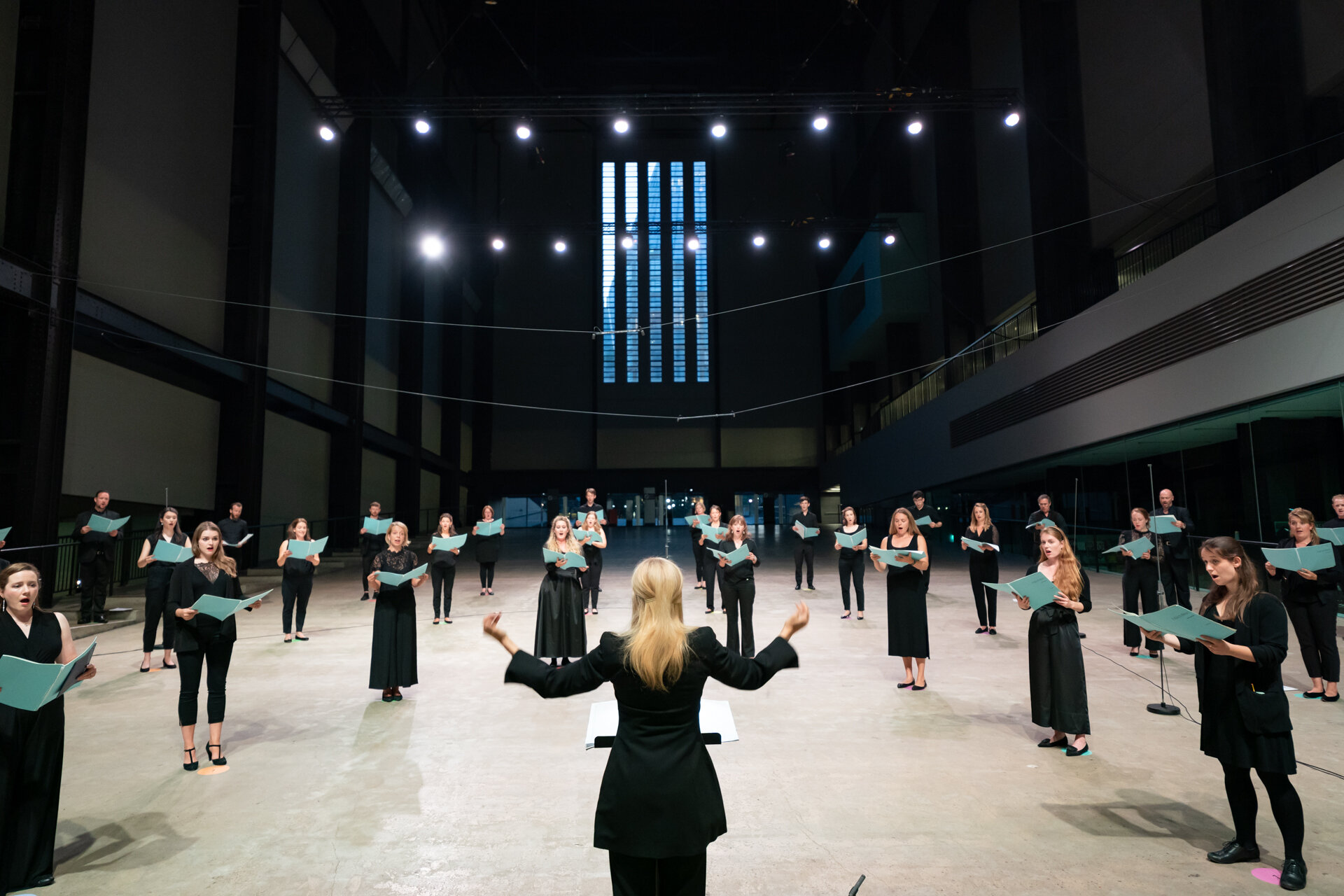
 United Kingdom Tallis, Escott, Byrd, R. Panufnik, Marsh, Andrew, Bray, Ešenvalds, Roth, LIVE From London Summer 2021 [2] – All Shall Be Well: ORA Singers / Suzi Digby OBE (conductor) with Zeb Soanes (narrator) and VOCES8. Livestreamed from the VOCES8 Centre, London. 11.7.2021. (CC)
United Kingdom Tallis, Escott, Byrd, R. Panufnik, Marsh, Andrew, Bray, Ešenvalds, Roth, LIVE From London Summer 2021 [2] – All Shall Be Well: ORA Singers / Suzi Digby OBE (conductor) with Zeb Soanes (narrator) and VOCES8. Livestreamed from the VOCES8 Centre, London. 11.7.2021. (CC)

Tallis – Te Lucis Ante Terminum. O nata lux
Escott – O Light of Life (ORA commission)
Byrd – Mass in Five Voices: Kyrie
R. Panufnik – Kyrie after Byrd (ORA commission)
Anon. – Stella maris nuncuparis
Marsh – All Shall Be Well (ORA commission, world premiere)
K. Andrew – Psalme 150 (ORA commission)
Byrd – Mass in Five Voices: Agnus Dei
Bray – Agnus Dei (ORA commission)
Ešenvalds – Infelix Ego (ORA commission)
Roth – Night Prayer (ORA commission)
VOCES8’s second summer season continues with a concert by the award-winning ORA Singers and BBC Radio 4 presenter Zeb Soanes (the reassuring voice of the shipping forecast). The ORA Singers is a relatively new choir that has been around for five years and were founded by their conductor Suzi Digby (Lady Eatwell). The underlying concept is that we are in a second golden age of choral music (the first being the Tudor Age), and the idea was to commission and record 100 new works. The first 50 works are responses to and reflections on Renaissance pieces (49 are listed on the Commissions Catalogue on the group’s website click here, complete with free listening links for many). The ORA Singers has recorded nine albums on Harmonia Mundi; one of the commissioned works (not included here) was James MacMillan’s 40-part response to Tallis’s Spem in alium, Vidi aquam, recorded in the Turbine Hall.
The glorious strains of Tallis’s Te Lucis Ante Terminum offered an opening of reassuring warmth. The reading, ‘Hazlenut’ by Julian of Norwich was the perfect starting point for the concert’s narrative element: Julian of Norwich was the first ever female author in the English language. Her ‘All shall be well, and all shall be well, and all manner of things shall be well’ was written during a plague that Julian herself endured; linking, of course, to our own current trials and travails. A launching point for philosophising on the love of God, the reading led to the radiant sounds of Tallis’s O nata lux. The real revelation here came about through the decision to follow that with Harry Escott’s O Light of Life; this was expertly managed, with Escott’s compositional voice emerging naturally from the Tallis. The interaction between the ancient and the modern is gloriously achieved – this is one of the finest new choral works I have come across.
‘A Child’s Sleep’ by Carol Ann Duffy was the next reading; VOCES8 performed the Byrd Kyrie from the Mass for Five Voices, unfolding naturally and beautifully, perfectly delineated. Roxanna Panufnik’s response to the Byrd, Kyrie after Byrd, seems to take the music and present it through a distorting mirror, full of slides in an idiom more identifiably of our time; the expertise of the ORA Singers was the perfect response.
‘Jenny Kiss’d Me’ by Leigh Hunt led into the anonymous Stella Maris nuncuparis, the imitation between the male voices of ORA Singers fascinating – just a touch more rawness to the performance would have brought it fully to life. Joanna Marsh’s All Shall Be Well (‘Without love we may not live’) presents a contemporary slant on radiance, Marsh’s harmonies and textures bright – shining, even.
‘The Hug’, Thom Gunn’s beautiful poem of longevity of love, led to Kerry Andrew’s jubilant setting of Psalm 150, the ORA sopranos particularly impressive higher up in their range. Texts were impeccably chosen: ‘Lissadell’ by Wendy Cope was a beautiful reading, leading into the Agnus Dei from the Byrd Mass, performed by VOCES8 (all 8 of them), gloriously pure, the peace of ‘pacem’ incredibly powerful. Charlotte Bray’s response, Agnus Dei, is magnificently ethereal.
A brilliant poem by Philip Larkin An Arundel Tomb was supremely evocative, full of poetic sleights that lift it into the territory of the great. ‘What will survive of us, is love’ is the final line, leading to Ešenvalds’s Infelix Ego (Unhappy I), a plateau of calm, on the surface showing some correspondences with the Roxanna Panufnik but, in reality, the deeper piece.
‘Little Gidding’, the final of T. S. Eliot’s Four Quartets is beautifully mystical; Roth’s Te lucis (Night Prayer) seemed the perfect complement, a golden ending to a beautifully planned and delivered concert with Zeb Soanes’s contributions particularly memorable.
Colin Clarke
